2011 Biking Rajasthan
We loved Jodhpur's old city spice shops (and
food): cardamom, cinnamon, cloves, cumin, poppy seeds, lentils, nutmeg, black
pepper, molasses, and more.
And loved Jodhpur’s Mehrangarh fort, which was never
conquered despite many attacks and sieges. When the current Maharaja’s ancestor
selected this spot for his fort, he evicted a hermit from the mountaintop who
put a curse on him, saying there would never be enough water to sustain the
fort’s occupants. A “bold man” offered to be sacrificed, by being buried alive
in the fort’s foundations, to mitigate the curse, and to this day the royal
family has a relationship with his descendents.
On the walls near one set of massive gates,
were “handprints” commemorating some of the widows who had committed sati
(self-immolation) on the funeral pyres of their deceased husbands. Our audio
tour tape praised the women, describing how, when a maharaja died, wives and
concubines, dressed in their wedding finery and watched by family members and
musicians, would sit in silence as they died. I must say I thought the
“silence” unlikely, but need to do more reading. In 1731 six wives and 58
concubines were burnt alive when the maharaja died; the last royal sati from
Mehrangarh took place in 1840.
The current maharaja inherited the throne
in 1952 when his father died unexpectedly. He was aged just four and came to
“power” post-independence. He had no dominion over which to rule, but had some
status still. By the time he grew up and returned from his studies (philosophy
and economics), it was 1972 and Indira Ghandi had changed the constitution to
strip maharajas of even this, forcing him to “rethink his role” – according to
his voice on the audio tour tape.
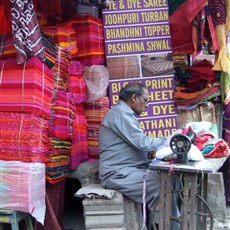
Jodhpur old city
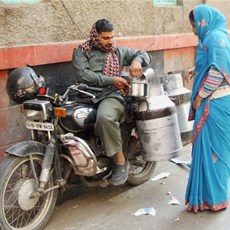
Jodhpur old city
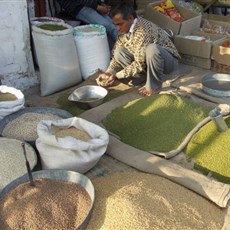
Jodhpur old city
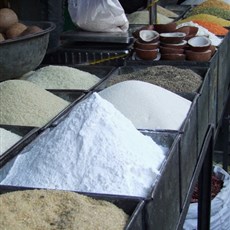
Jodhpur old city
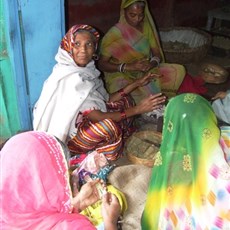
Jodhpur old city
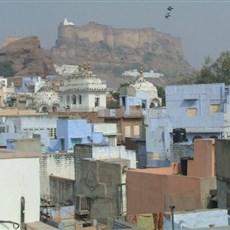
Mehrangarh fort, Jodhpur
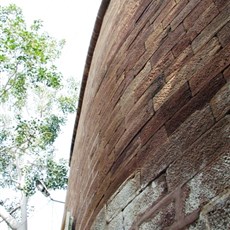
Mehrangarh fort, Jodhpur
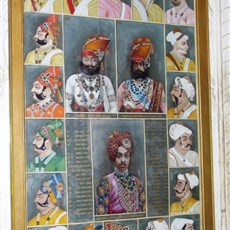
Mehrangarh fort, Jodhpur
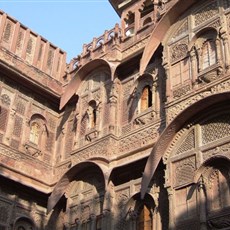
Mehrangarh fort, Jodhpur
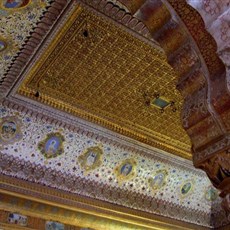
Mehrangarh fort, Jodhpur
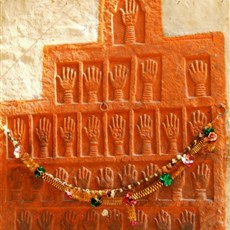
Mehrangarh fort, Jodhpur
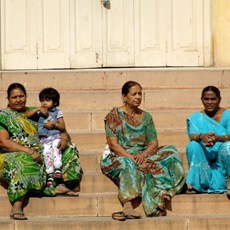
Mehrangarh fort, Jodhpur
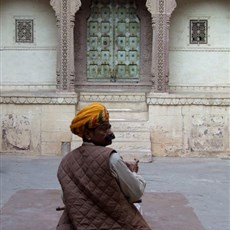
Mehrangarh fort, Jodhpur
On the outskirts of Jodhpur we visited the small museum in one wing of the Umaid Bhawan
Palace, now a superb
(apparently, we weren’t allowed in) hotel. The palace was built by the current maharaja’s
father shortly before his death and prior to independence as a “job creation
project”. The palace, begun in 1929, is Art Deco in design and took 3,000
workers 15 years to complete. The royal family today lives in one wing. No
mortar was used in construction, the hand hewn blocks of sandstone simply
interlocked. The blocks were too heavy to manoeuvre to perfectly align the
interlocking “bits”, so were first placed on blocks of ice and correctly
positioned as the ice melted.
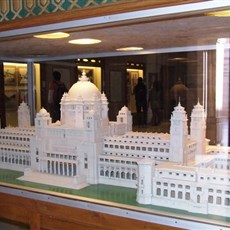
Umaid Bhawan, Jodhpur
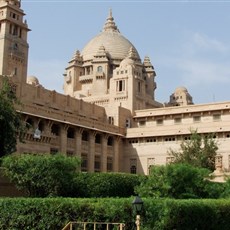
Umaid Bhawan, Jodhpur
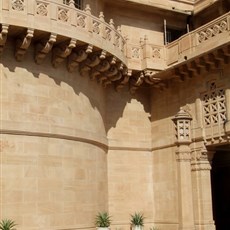
Umaid Bhawan, Jodhpur